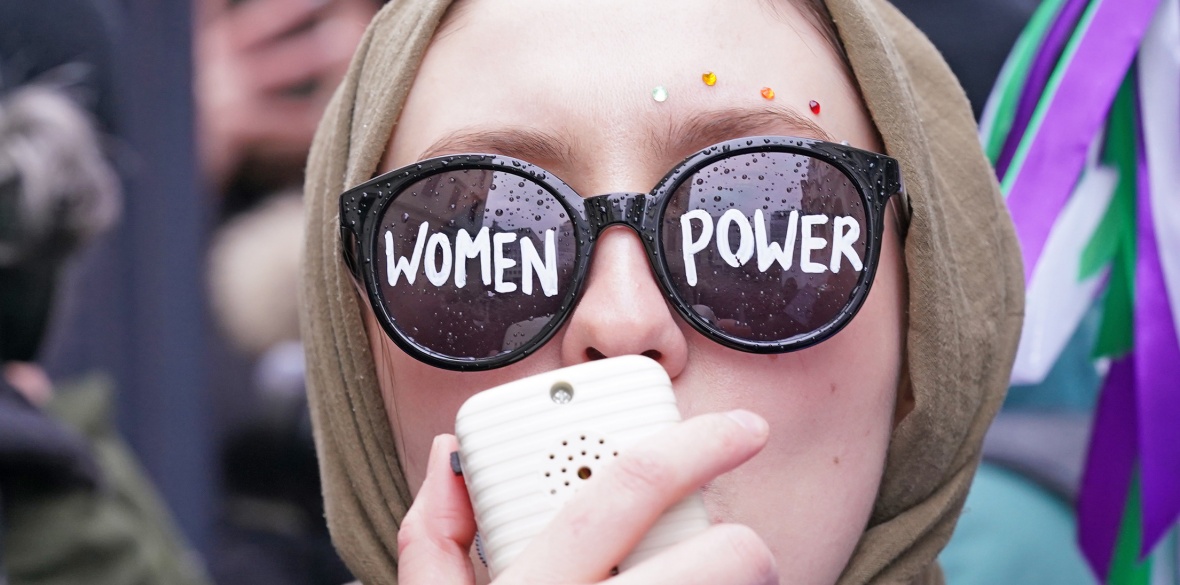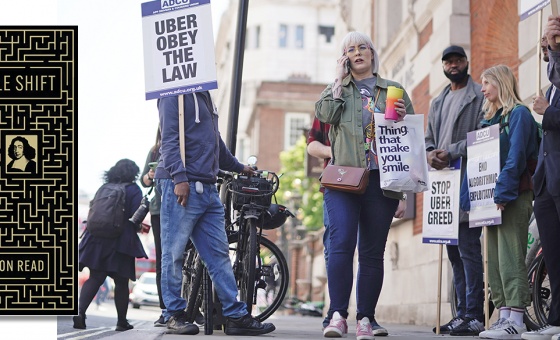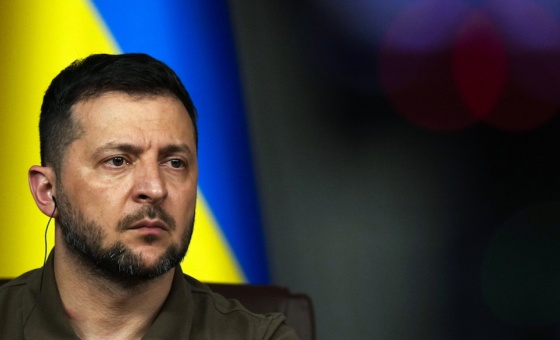This is the last article you can read this month
You can read more article this month
You can read more articles this month
Sorry your limit is up for this month
Reset on:
Please help support the Morning Star by subscribing here
IN THE years to come, women must raise their voices against female oppression.
I was certainly not “raised” as a feminist. On the contrary, I was raised being told by society in general that women are not oppressed any more.
Indeed, many people actually say that every day to women on social media, in the newspapers, in the movies, in the advertisements.
For years, I have accepted a narrative that women’s achievements in equal opportunities, political or economical independence and bodily autonomy were stark proof that patriarchy has been overthrown.
But the evidence that can be found goes against that claim. Women’s achievements around the world do not prove that women are not oppressed any more, but an account that women are fighting.
Around 2011, I was pregnant with what would have been my second child. This pregnancy would end up in a gruesome miscarriage that traumatised me.
I suffered obstetric violence, but I didn’t have a name for it at the time. A year later, I got pregnant again and, when I announced it to some female friends, they seemed to rush to tell me about the obstetric scenario that my country, Brazil, was going through.
That was my wake-up call. I became an activist mother, supporting the cause to help women give birth in a respectful way and save women’s lives in childbirth. Soon I discovered feminism too.
In 2016, a teen girl was gang raped by 33 men in Rio de Janeiro. The gruesome case came into the public eye because the perpetrators filmed the crime and posted it on Twitter.
It took 800 reports to the police for the video to be removed from the social media, two days after being posted. Before that, a medical student in India had been gang raped and impaled by six men, and died from the injuries.
I started to question even more, but I still believed in the “isolated case” narrative — that structural and institutionalised oppression of women and girls wasn’t happening any more.
I even intended to make a list of issues that used to happen to women and don’t happen any more, like foot-binding and scold-bridles.
But, the more I researched, the more I kept finding issues that were happening to women and girls in our times. Issues that are not talked about enough in the media, apart from the “isolated cases” we are told about.
On August 6 2019, I started a thread on Twitter, with the issues I had found so far.
On the first day, I posted around 40 links for news pieces talking about issues like sex-selective abortions giving preference to the birth of boys; female infanticide; female genital mutilation; breast ironing; teen pregnancy; marriage of underage girls to older men; period stigma in the form of “period huts” or the struggle for girls to keep going to school when they lack menstrual pads; breastfeeding stigma; obstetric violence; abortion restrictions; pregnancy discrimination; childbirth mortality rates; menopause stigma; and negligence towards female health.
I found out that, not only there were thousands of issues that were not properly addressed, but also that there were still several other issues that most women didn’t even know about, especially around female health.
One of the topics that normally surprises people the most is the fact that women may be unconscious in a hospital setting when medical students may be asked to perform pelvic exams on them, without consent.
I found that half of women who are over 50 may get uterine fibroids. That women are barely asked to take part in medicine trials because they menstruate.
That many young Indian women are having elective hysterectomies to be able to work because they don’t get breaks to put a menstrual pad on. Or are sterilised against their consent. Or get a procedure called “husband’s stitch” after childbirth, supposedly done to “tighten” the birth canal.
Charting female oppression through the research of news pieces reporting on issues affecting women and girls gave me an unprecedented insight into the stark reality of women’s condition in patriarchal societies.
Not only are women still oppressed in the 21st century, but female oppression happens all over the world — even in developed countries.
The struggle is real — and it’s global. Some of these issues affect women and girls literally everywhere, like child marriage, obstetric violence, domestic violence and femicide.
It may not be so subtle in places like Somalia, currently with 98 per cent of their female population having undergone FGM.
This practice not only has never been completely addressed and banned in many African countries, but also has increased enormously after the Covid-19 pandemic started due to the economic crisis that followed.
Families, struggling to feed their children, sell or give away their girls in child marriage and, prior to that, they go through FGM.
Other issues also got worse during Covid containment measures. In Poland, abortion rights were completely obliterated, and now women are dying in miscarriages of a non-viable foetus.
Many women in developed countries might not be giving away their girls to be able to feed the rest of their children, but, overall, in all countries, women in the workforce were the most affected by unemployment.
Childcare services, women’s small businesses and services, were shut down during lockdowns and many are never returning, leaving women economically dependent on governments or male partners, unable to flee the abusive ones. Researchers have found that male domestic violence was the only crime that has increased during Covid lockdowns.
There are certainly many female issues and struggles still to be addressed in this day and age. The fight is in no way over.
And women’s struggles may even be getting worse — some say that the pandemic risked regress on women’s achievements by at least 50 years.
Essentially, not only do women need feminism, but they also need to keep fighting for better conditions for all women and girls.
International Women’s Day could be a day for the visibility of women’s struggles, and for women to voice their concerns, their lives and their experiences in a world ruled by men, and for men.
Now, more than ever, it’s time to talk about the issues that affect women and girls, to march demanding safety and dignity, to elect representatives who will effectively legislate for women’s autonomy and emancipation, to join an activist group and lobby for change.
The celebration of women’s sparse achievements may be talked about as yet another tool to prove that women are capable of organising independently and demand justice.
Andreia Nobre is author of The Grumpy Guide to Radical Feminism (Grumpy Guides). Follow her on Twitter @ariana_erbon.











